Patient Rights vs. Doctor’s Orders
PATIENT RIGHTS VS. DOCTOR’S ORDERS (ISSUE 137)
By Diane Gold
Patient rights vs. doctor’s orders is an issue very much ignored. We have been raised with the habit of accepting doctor’s orders, to believe ethics are important to our doctor and that s/he believes in patient’s rights. Growing up in the New York Metropolitan area, I was raised that way. But, that was 50 years ago.
Through the years, though, I now know it is my duty to myself and others to gather my own information about my health, including recommendations from qualified doctors and many other sources.
VIOLATION OF PATIENT RIGHTS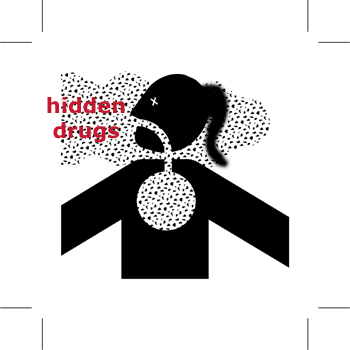
So, here I am, in 2014, being all sophisticated and thinking I am completely prepared to make my own choices about what drugs I allow into my system, what tests I consent to have, what health care providers and process I choose for my ultimate health care.
So I choose to go to a breathing specialist because I had what felt like phlegm (sorry, gross) somewhere around my vocal cords, and my vocal range (how high and low I can sing) had seriously diminished (which could be from age). So I walk into the doctor’s office to have a breath test because the previous week, I had consented to it with this specialist.
So, the tech directed me to sit in a booth where we go to breathe into a machine to measure lung capacity, and the technician asked me to blow into something outside the machine. No explanation of anything we were about to do.
I did not have my glasses on so did not see that I could have been about to blow into something with drugs in it. My fault, absolutely, since I know no one will advocate for my patient’s rights as well as I will. I stuck my head outside the booth and breathed into what the tech had in her hand and immediately felt dizzy. I asked if I had just inhaled a drug and received the answer,
“Yes.”
I asked which drug to which I got the reply,
“Albuterol.”
I objected that I had not been given the choice to inhale a drug or not before I got it and stated my objection and surprise.
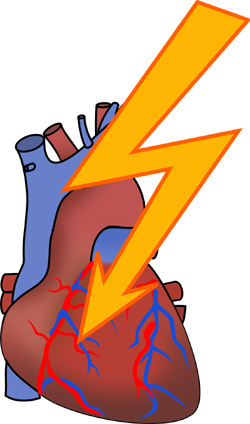 I finished the test with no major reactions and went on my merry way, although I felt violated. Almost immediately after leaving the medical office, I started feeling speedy. And then more speedy, and then more speedy, to the point where I was sweating with my heart’s racing; I knew I was sick and was having a reaction to albuterol.
I finished the test with no major reactions and went on my merry way, although I felt violated. Almost immediately after leaving the medical office, I started feeling speedy. And then more speedy, and then more speedy, to the point where I was sweating with my heart’s racing; I knew I was sick and was having a reaction to albuterol.
I researched whether albuterol was close in structure to epinephrine to which I am allergic. Although it’s not, it causes similar issues, especially in people with sensitivities, like me. Somewhere, in the back of my mind, I recall being informed and refusing any drug for a similar test 3 years ago, although this refusal is not in my chart. Be it in there or not, this time, I was not informed that the test involved administration of a drug or that blowing into a hand-held device would administer the drug.
Unfortunately for me, the tech forgot to look at the epinephrine allergy in my chart and mistakenly administered this drug. But, the worst part was not being given the choice, even though the allergy note was sitting on the top of my chart waving a flag.
I had the good old American reaction to sue, sue, sue the doctor’s office. According to my attorney, the only way to sue for loss of work, pain and suffering, the actual few hundred dollars I might have lost for the day, not being able to work, or the sick time which I can never get back; would have been if I had had a heart attack, a major cardiovascular event like a stroke in response to the drug or died.
SOLUTIONS, OTHER THAN LAW SUIT
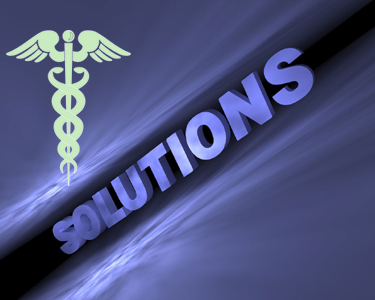 Since I lived, my mind started to run away with me, and I thought about running to get my medical records for the attorney. I calmed down and realized a much better solution instead of pointing fingers, blaming and taking to the legal system I so revere.
Since I lived, my mind started to run away with me, and I thought about running to get my medical records for the attorney. I calmed down and realized a much better solution instead of pointing fingers, blaming and taking to the legal system I so revere.
My solution was to tell the doctor that I would agree not to write an expose, only a helpful article, and I would not call the county health commissioner or the doctor board or the AMA with complaints. I would also refrain from going to one of the health care rating websites to tell my tale since we are all human, and we all must recognize it’s our job to be diligent about making sure that doctors and staff read our charts and give us choices. It shouldn’t be our job to teach this; medical schools should make this ironclad. Because we have allowed doctors’ egos to forget us and dictate our care; they have been taught to give orders, and we have taken them. We all must change this.
I was pleased with my solution, much more lasting for many future patients, than an attempt to defame people who have worked hard for so many years and may learn their errors from this experience. I also requested to be placed on the local Hospital Ethics Committee with the doctor in this story, for which I await a response.
ACCEPTING DOCTOR’S ORDERS
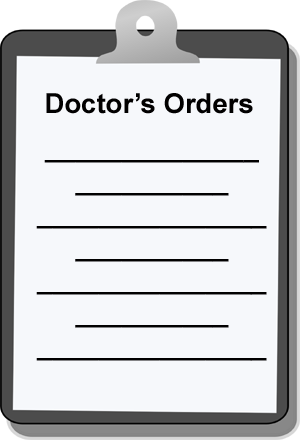
Many of us believe the doctor and go with the doctor’s advice, because this is the habit with which we have been raised – trust the doctor, doctor knows best, the doctor is the expert, and doctors have the impressive answers. Some of us ask the doctor to proceed without explanation. Others of us listen to explanations and put them in our folder along with other advice. Some don’t have enough money to go to the doctor, although the Patient Protection And Affordable Care Act in the United States has had a positive impact.
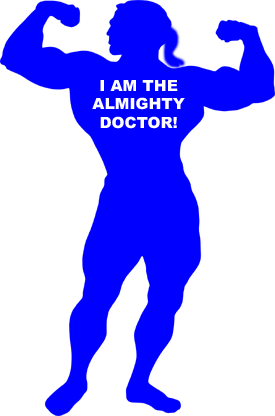 Although the Hippocratic Oath, taken by every MD, includes keeping oneself away from seduction; the biggest seduction and the one most difficult to see as we are being seduced is the seduction of the ego, thinking we are the skilled, the almighty and the awakener with a better solution than the patient. The Osteopathic Oath mentions retaining the respect of the patient. If we are filled with ego and if we disrespect our patient’s rights, how are we fulfilling our oath?
Although the Hippocratic Oath, taken by every MD, includes keeping oneself away from seduction; the biggest seduction and the one most difficult to see as we are being seduced is the seduction of the ego, thinking we are the skilled, the almighty and the awakener with a better solution than the patient. The Osteopathic Oath mentions retaining the respect of the patient. If we are filled with ego and if we disrespect our patient’s rights, how are we fulfilling our oath?
PERSONAL RESPONSIBILITY
It comes down to our taking responsibility for ourselves. Doctors can guide us and make us aware of the latest research studies, new pharma and their favorite integrated medical technique. But, we are truly the responsible party when it comes to our health. Who better than we can advocate for us?
CONCLUSION
 In conclusion, it’s important to be aware that the doctor is a consultant from whom we can hear expert opinion. S/he has studied hard to be able to evaluate a certain brand and branch of medicine. Unfortunately, the doctor who has studied Eastern medicine, Western medicine, Native American medicine, Latin American plant medicine and international tribal medicine is in the best position to give medical guidance; but I don’t know of any who have all this training.
In conclusion, it’s important to be aware that the doctor is a consultant from whom we can hear expert opinion. S/he has studied hard to be able to evaluate a certain brand and branch of medicine. Unfortunately, the doctor who has studied Eastern medicine, Western medicine, Native American medicine, Latin American plant medicine and international tribal medicine is in the best position to give medical guidance; but I don’t know of any who have all this training.
The bottom line for all these medicines is that accepting doctor’s orders is only valid once each of us has done our research through reading or second or third opinions of other specialists. Since most of us don’t have the time, money or lifespan to live with the dis-ease; we usually go with the first doctor’s advice. That’s all well and good as long as we are given full and transparent information, time and encouragement in researching the recommendation and our other treatment choices and all choices are offered by a doctor or researcher with ethics and value for patient rights.
ACTION STEPS
Here are several questions to ask your doctor that may help you evaluate whether your patient’s rights are important to your doctor. Any doctor who is not open to discussing the below may not be thinking enough about patient’s rights and you or your family member.
1) I want to get a second opinion since you just gave me yours. How does this make you feel?
Any doctor who would feel slighted or annoyed at this very important right is suffering from ego seduction and needs to be advised so, whether by you or by someone. Make sure you do not suffer because of it since it is a patient’s right to explore as many options as s/he sees fit.
2) I have found a health benefit from this nutritional strategy. Do you feel comfortable discussing it and do you value this type of medical strategy as much as your suggestions that are non-nutritional?
3) How much direct coursework, if any, were you required to do on nutrition in medical school? Did you do any nutritional coursework on your own?
____
FOOD FOR THOUGHT
 Wouldn’t it be nice if the plant based food industry were a cooperative in itself and could get a direct benefit from creating such a course for medical professionals the way pharmaceutical companies benefit directly from courses they give on their new drugs as solutions for specific diagnoses.
Wouldn’t it be nice if the plant based food industry were a cooperative in itself and could get a direct benefit from creating such a course for medical professionals the way pharmaceutical companies benefit directly from courses they give on their new drugs as solutions for specific diagnoses.
____
4) Is your opinion more important than the patient and can you explain your answer?
5) Would you give a patient who seemed to completely disagreed with you time to explain why s/he felt the way s/he did, or would you just write in the chart, “Patient refused treatment,” and move on to someone who was cooperative?
What feelings would the fact that the patient disagreed stir up in you?
![]()
If you wish to share your story, please hit reply in your email program to be contacted.
![]()
FEEDBACK
We value your feedback very much.
Please leave a comment below.
Please LIKE us on the website and at
WarriorsOfWeight on Facebook.
You can also follow us on
Twitter @warriorsoweight.
Thanks.
![]()
DIANE GOLD, PUBLISHER AND AUTHOR
Diane Gold, Founder of Warriors of Weight, Turning Habits Into Health, is a mentor in tai chi, kung fu and meditation, a music, fitness and stress expert, dedicated mom, studying plant-based nutrition, conflict resolution and habit change.
She believes it is crucial to maintain personal ethics and that the more powerful we become, the stronger we must display our ethical stance. She says,
“While we are struggling to develop a work environment that feeds and clothes us as well as our families, we are busy finding our way. But, once we have passed this level, as I see it, if we choose to rise up as higher humans, it is our duty to humanity as a whole to demonstrate ethics in our daily decisions.
“As usual, I am not suggesting that we do nothing but pro bono work, nor am I suggesting we not make wonderful profits. I am saying that it is not sporting, that is, in good, ethical fashion, to prey upon those who are ignorant of their own rights. Prey upon someone who understands the preying field.
“What I’m saying is that it’s our duty to show right from wrong, even when circumstance, technicality or ignorance could have led to our easily taking advantage of someone with less or no knowledge.
“Living well within ourselves is the way. Let’s do it.
“Finally, let us all take good care of ourselves because we are so worth it!”
![]()







